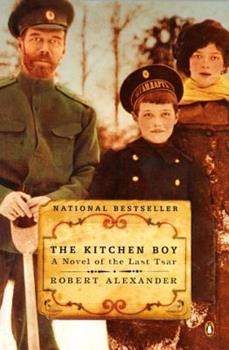

Today, 89 years ago, Tsar Nicholas II of Russia and his entire family, including Alexis, the prince who had hemophilia, were assassinated in Siberia. This event shocked Russia and the world, and the elimination of the Tsar and the monarchy fueled a bloody civil war in which tens of millions of Russians died. The deaths of the Tsar, Empress Alexandra and their five young children have been the subject of many books and movies. One recent book is “The Kitchen Boy,” by Robert Alexander, which I just happened to read last night, not even aware that I was reading it on the eve of the anniversary.
The book is fiction, but draws on certain facts, and is narrated by the “kitchen boy” who served at Ipatiev House, where the royal family was imprisoned. As a servant, he had access to watch all that happened at the house, including the family’s death. He becomes close to the royals, and details their personalities, flaws, loving manner toward one another, and even their brutal deaths. The “kitchen boy,” now 94, lives in Illinois and wants to share some details he has never revealed before to his granddaughter. He records his memoirs, which becomes the narration of past events in the book. He eventually reveals who killed the Tsar and his family, and what became of the two missing bodies, believed to be Alexis and Anastasia (about whom there are also many movies and books). He reveals that actually Alexis and Maria were missing, and he tells how and why, and how that impacts his life, even now.
The book is easy to read–I read it in one sitting–and the language and style is a bit too easy. It reminded me of the kind of book we had to read for junior high over the summer. Interesting but light. You can almost believe the conversations and events took place, and I think that’s the best part of the book–the way Alexander makes the royal family come to life. But the book loses credibility towards the end. It tries to read like a da Vinci code a la Dan Brown, but it’s much too simplistic a plot for that. The plot takes a sudden radical twist at the end, which kind of left me head-scratching. I just didn’t get it.
Part of the ending included reference to someone with hemophilia (no spoilers) who had mild hemophilia, apparently had no manifestations of hemophilia his whole life, then got into a car accident, hit his head on the steering wheel and died at the scene. I am not a doctor, but this just didn’t sound accurate to me. There were plenty of accurate references to Alexis’s hemophilia, and how the poor boy suffered.
All in all, I would recommend this as a read, but don’t expect a great historical book or a great mystery. It’s light, not perfect, but a great summer beach book that can be read fast, and you may come away with a new appreciation of the Russian royal family. Hemophilia is a pervasive theme throughout the book, and plays a part in solving the mystery of what happened to the royals, and the two missing bodies. (Two stars out of four)

